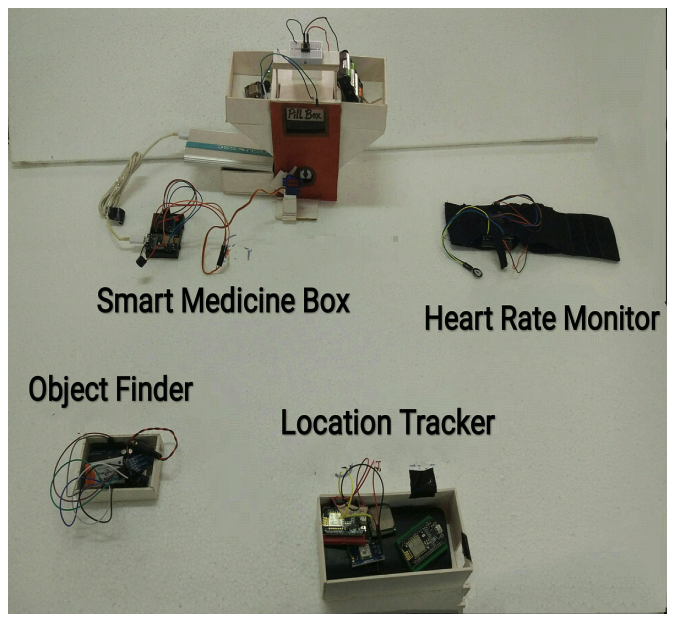An Intelligent Assistive Tool for Alzheimer’s Patient

Key Contributions:
- Designed and prototyped an assistive system with a mobile app to support Alzheimer’s patients and caregivers through health monitoring, medication reminders, item tracking, and location monitoring.
- Conducted a focus group study with 15 participants (students and faculty); 87% found the system functionally accurate, and 100% rated it easy to use, validating usability and system effectiveness.
- Integrated multiple assistive features into a single, unified platform—a novel contribution over prior fragmented solutions—with potential for future enhancement as wearable and offline-capable modules.
Abstract
Alzheimer's Disease (AD) is a chronic neurodegenerative disease that causes to develop dementia. Alzheimer's patients find it hard to remember recent events, reason and even to recognize people they know. As the disease advances, symptoms can include difficulty with language, disorientation including getting lost, mood swings, loss of motivation, lack of self-awareness and overall behavior. Though a limited number of IT based solutions exist to provide support for Alzheimer's patients, but most of these provide very isolated services either for the patients or for the caregivers. The objective of this research is to propose an assistive tool for Alzheimer's patients and their caregivers to provide support like health monitoring, assist to find lost items, provide reminder to take medicine and assist to monitor patient's location. A light-weighted evaluation study was carried out with 15 participants. The evaluation study showed that the proposed system was effective and usable for the patients and their caregivers.
References
-
 An Intelligent Assistive Tool for Alzheimer’s PatientIn International Conference on Advances in Science, Engineering and Robotics Technology (ICASERT), 2019
An Intelligent Assistive Tool for Alzheimer’s PatientIn International Conference on Advances in Science, Engineering and Robotics Technology (ICASERT), 2019